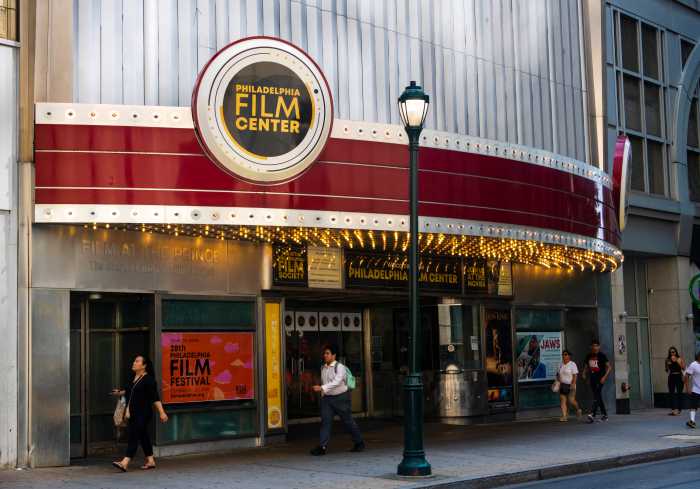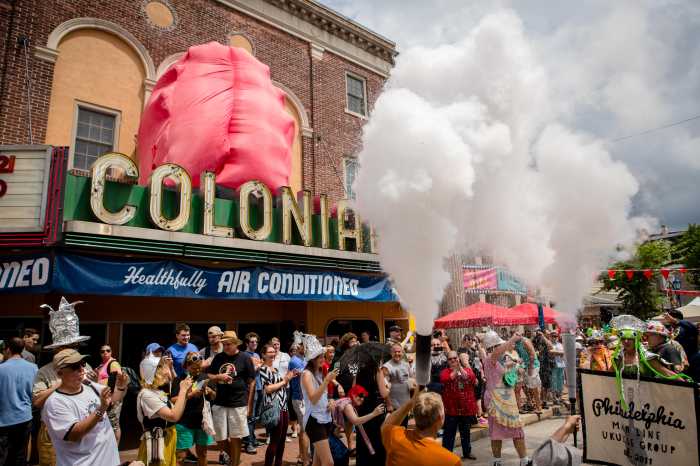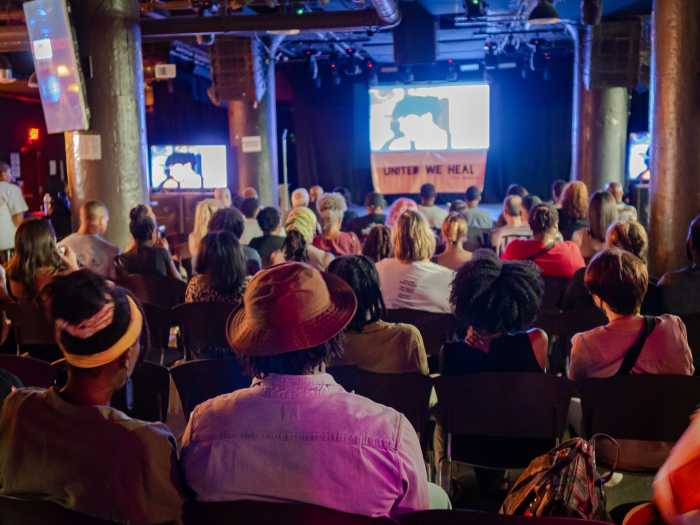By María Estévez, MWN
Thousands of people still believe that Elvis may not have died or was kidnapped by aliens and managed to escape. His figure has transformed to the point that we are witnessing an idol that is becoming a semi-god. Well, Presley is already a saint to many people, as evidenced by the existence of “Elvis Shrines” and the pilgrimage to Graceland. And the myth grows once again with the release of the new movie called “Elvis,” directed by Baz Luhrmann.
We have waited a decade for the Australian filmmaker to sign a new movie in theaters. Since “The Great Gatsby,” with which he won two Oscars, the director did not make a feature film. Luhrmann has been working hard on what some might consider the mega biography of all biographies: the story of the Rock ‘n’ Roll legend Elvis Presley that stars Austin Butler, Cindy Crawford’s nephew, in the role of the singer. It took the actor two years in order to fully embrace the character.
“I basically put the rest of my life on hold for two years. I just went down the road of obsession,” Butler, in a deep voice, tells a packed-out press room at the Cannes Film Festival. “I would watch one second of a clip over and over and over and look at what his eyes were doing, what his hands were doing, and practice that until it was in my marrow. The reason why he moved in that way and why he spoke in that way – that meant farming his inner being. That’s the tricky thing.”
He added: “You see Elvis as this icon, or as the wallpaper of society. Finding a way to strip all of that away and find the very human nature of him that was deeper than all of that, that’s what was fascinating to me.”
A lot of technical work had gone into embodying the rockstar. When filming one scene where Elvis performs ‘Hound Dog,’ the actor said, he watched the playback and felt he was over-acting. So, he needed to do it again.
“He told me that I have to get through the nerves, and just feel alive,” Butler commented on certain “unrealistic expectations” that hindered his success at first as he opened up about the unprecedented challenges during filming. “When I first started, I put these unrealistic expectations on myself that somehow, if I worked hard enough, I could make my face identical to Elvis’ face. And that my eyes would look exactly like Elvis’ eyes and you wouldn’t be able to tell the difference.”
The figure of Elvis cannot be understood without one of the key characters in his life: his agent, The Colonel. Tom Hanks described the character as “a rather ingenious pimp of the carnival who seemed to enjoy robbing a little kid out of an extra 25 cents just as much as he enjoyed robbing a casino in Las Vegas out of $45 million.”
The actor also talked about shooting in Australia during the incredible COVID restrictions:
“One thing that was frustrating was that we did shoot this under the COVID protocols so there were a lot of people who did not see each other every day. As a matter of fact, the joy of a common hair and makeup trailer was lost, we were all separated. I never got to see Austin until he was all done up as Elvis on the set. It was not the easiest of circumstances to make a movie but I have to say, it was a fabulous studio, the film industry down there is as great as exists anywhere in the world and I would return on a moment’s notice, just not quite with the same amount of COVID attention.”
There’s a scene minutes into the film where the Beale Street-loving Elvis – dressed in a bubblegum pink suit and a sheer, black lace shirt – shows a new audience some of his hypnotic moves as he fuses bluegrass with R&B, gospel and country. Those locomotive hips were gyrating against the strict social laws of 1950s America, and into the retinas of conservative watchdogs. But it’s the sexual reawakening women across the nation were experiencing when they watched Elvis move that is so titillating, as depicted in this scene when one female, to her own surprise, lets out an almost primal scream.
“You know, I am the ultimate outsider. I come from a very small country town. As an outsider, when I do something like ‘Moulin Rouge’ in Paris, or ‘Gatsby’, I live the story like Fitzgerald, probably a little bit too much, but I do live it. That’s why I make films so infrequently. The greatest joy is to be an outsider and live it. The thing that became so apparent to me in living this story was the number one thing about Elvis Presley’s journey. It’s the canvas on which the story is written. For me, it was as important to reveal the times as the Elvis figure,” the filmmaker stated.
Luhrmann met with Priscilla Presley, ex-wife of Elvis, her daughter Lisa-Marie Presley and her granddaughter Riley Keough prior to making the movie. When a final cut was ready for viewing, the family was the first to see it.
“I think Priscilla was afraid of watching the movie. So much has been said about the icon that he became almost a God, but for them he is family. There have been so many things that are just not true and we wanted to make it right.”
Butler was with Luhrmann at the same time Priscilla was watching the film, an anxious three-hour wait that the Australian director struggles to put into words. As she exited the theater, Luhrmann spoke with her:
“She said: I wasn’t ready for that. Every breath of Austin’s, every move, the spirit, the humanity, the man – not the icon. If my husband was here today, he would look at Austin and say: “Hot damn, you are me.””
The day after the premiere in Cannes, the entire city felt the Rock ’n’ Roll hangover:
“There are many reasons, but I think, fundamentally, we all felt the humanity of someone who is such an icon. He’s held up to super-human status. But to get to explore that and learn the way he was, and find the human within that icon, that was really such a joy that I would never forget,” Butler concluded.
The world would also never forget Elvis.
“Elvis” is now showing in theaters.































